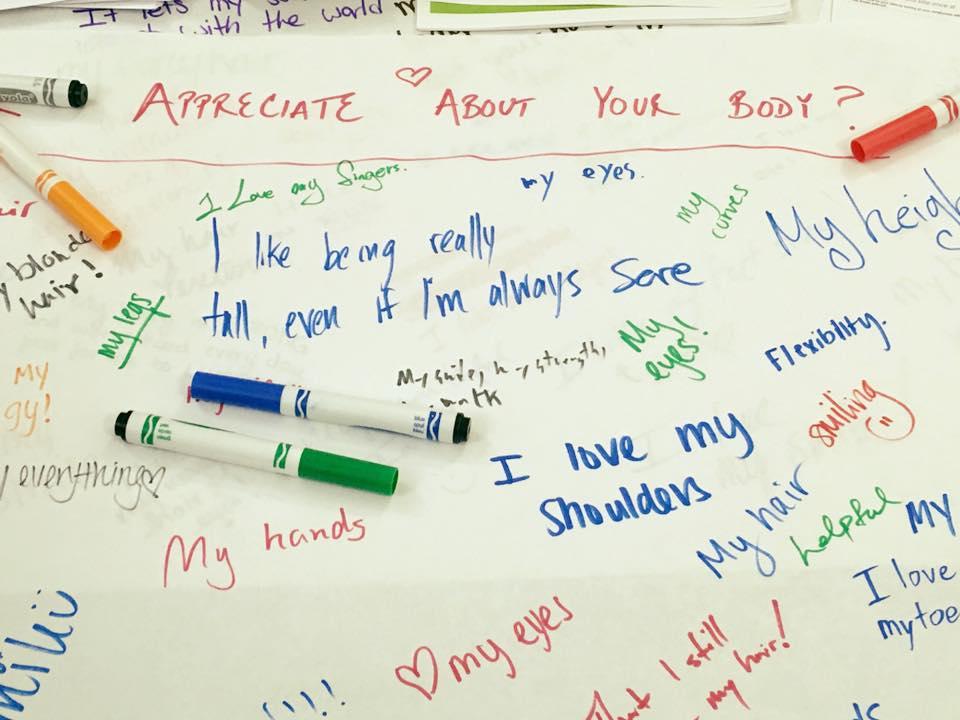How to help yourself
- Eat regularly — otherwise your body will be set up to be over-hungry, which can lead to binging later and/or to altered thinking
- Avoid comparing yourself to others; push aside critical self-talk
- Avoid reflection staring (in windows, mirrors, etc.)
- Learn to “tune in” to your body’s cues for hunger and fullness
- Be comfortable with food as necessary fuel and at times a source of pleasure
- Recognize the importance of overall health and a healthy balance of diet and exercise
How to help a friend
Helping a friend with a battle that feels personal to them can be a difficult task, but it is important to remember, you could save their life. If you feel you know someone displaying disordered eating behaviors, or an unhealthy body image, do something: say something. It could be exactly the help that they need.
- Say something — eating disorders are often a cry for help
- Be supportive.
- Focus on the accomplishments of your friend — what are the things that make your friend great outside of their appearance? This will improve their self esteem and self image.
- Get support for yourself — supporting someone suffering from an eating disorder or even just disordered eating, can be very stressful. It is important to remember that it is not your responsibility to fix the problem, and talk to someone like a counselor if you need to.
Find more information about Eating and Body Image Concern Screenings at CAPS HERE.

